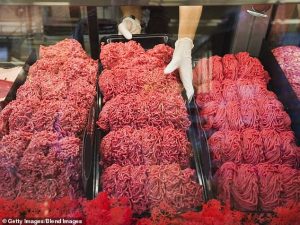Key Takeaways
- Canada will allow cloned meat without safety reviews or labels
- US has had unlabeled cloned meat in food supply since 2008
- Health Canada eliminated ‘novel food’ classification for cloned meat
- Consumer groups and producers demand labeling for informed choice
Cloned meat is set to enter Canadian grocery stores without mandatory safety reviews or labeling requirements. Health Canada’s recent policy change has eliminated the 22-year-old classification of cloned meat as ‘novel foods,’ removing pre-market safety assessments.
The development has sparked significant outrage, particularly in the United States where consumers are discovering that similar products have been in their food supply since FDA approval in 2008 – all without disclosure.
Public Outrage and Social Media Reaction
Americans have expressed shock on social media, with many calling the situation ‘outrageous’ and demanding immediate labeling. ‘Everything needs to be marked with exactly what it is and the place of origin,’ stated one social media user, while others claimed the FDA ‘has failed the American citizens.’
Opposition to cloned meat stems from multiple concerns:
- Animal welfare issues including health problems and miscarriages
- Food safety risks from antibiotics or hormones
- Ethical and religious objections to cloning technology
- Fears about potential human cloning applications
How Cloned Meat Enters the Food Chain
The process begins with creating genetically identical copies of desirable animals. These clones are then bred through normal reproduction, with their offspring eventually entering the food supply. Consumers have no way to identify meat from clone lineages due to the absence of mandatory labeling.
duBreton, a major Certified Humane and organic pork producer, has strongly criticized Health Canada’s move. ‘People have the right to choose for themselves,’ the company stated. ‘Quietly changing the definition of a novel food takes that choice away.’
Regulatory Position and Consumer Concerns
Both Health Canada and the FDA maintain that cloned meat is not materially different from traditional meat, therefore requiring no special labeling. While cloned animals themselves are rare and expensive, regulators expect primarily their offspring to enter the food chain.
Consumer advocates argue that limited data and lack of transparency undermine informed choice. The Center for Food Safety criticized FDA’s decision, noting it ‘flies in the face of massive public opposition to animal cloning’ and ‘widespread scientific concerns about the risks.’
The agency’s own risk assessment acknowledged that ‘a vast quantity of animal clones are unhealthy and would not be suitable for the food supply.’
Global Context and Scientific Advances
Europe maintains a ban on cloning farm animals and selling products derived from them. Meanwhile, cloning technology continues advancing globally. Scientists have recently cloned rhesus monkeys and Tibetan goats using the same process that created Dolly the Sheep in 1996 – the first-ever cloned animal.
As Canada prepares to implement these changes next year, the debate over consumer rights, food safety, and ethical considerations continues to intensify.






